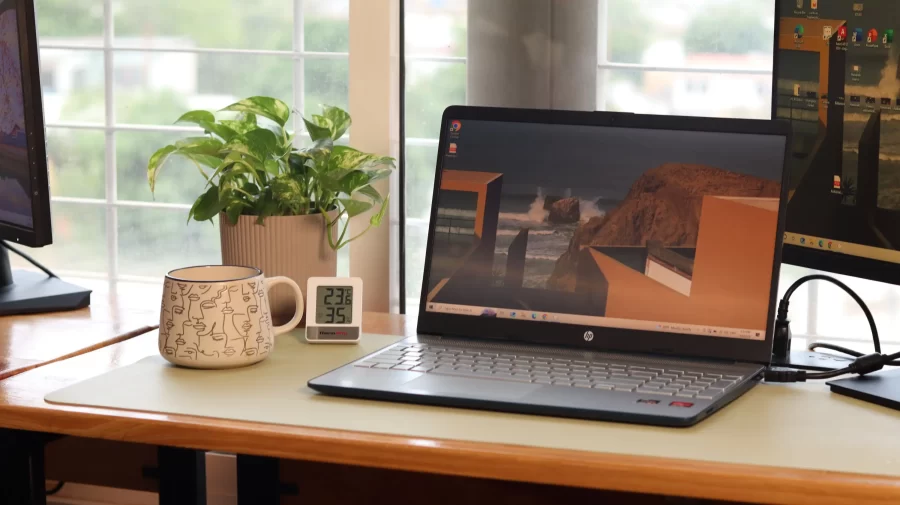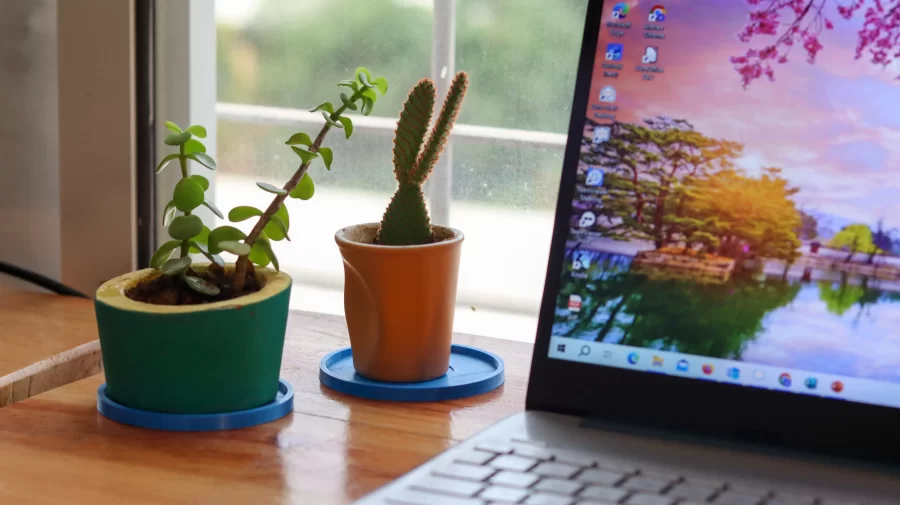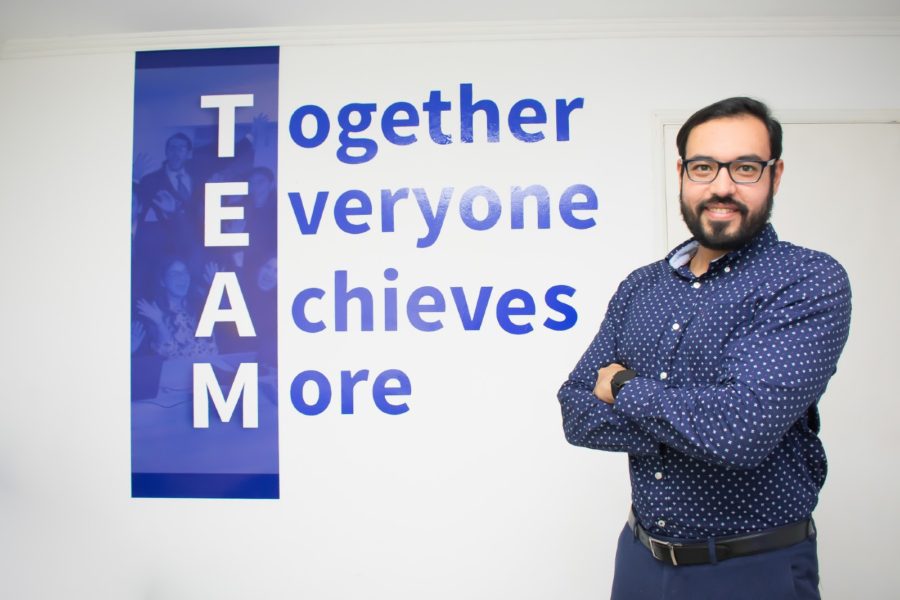Do you often get lost in the little details of a task or project? Are you meticulous and organized, with a strong eye for precision and accuracy? If so, chances are you have a knack for being detail-oriented.
Do you know which skill is highly coveted in almost every industry? It’s the one that guarantees top-notch work and quick, effective solutions to any problem. You guessed it right, it’s the skill that never goes out of style – the ability to produce high-quality work and efficient problem-solving.
What Does It Really Mean to be a Detail-Oriented Person?
When being detail-oriented, you pay close attention to small details to ensure that they are correct and in place. This means covering all the details to avoid overlooking any aspect of a task or project. It involves being meticulous, thorough, and organized in one’s work, with a strong focus on accuracy and precision. A detail-oriented person is someone who does not overlook any aspect of a task or project, no matter how small it may seem.
They have a keen eye for spotting errors and inconsistencies, and they take the time to carefully review their work before considering it complete. Having a sharp eye for detail is not just an admirable trait, but a critical skill that allows individuals to prioritize tasks effectively and manage their time efficiently.
They’re really good at catching mistakes and inconsistencies, and they always make sure to double-check their work before calling it done. Being super detail-oriented isn’t just cool, it’s a crucial skill that makes a big difference.
Here are 13 signs you have detailed orientation:
You Always Notice Spelling Errors Or Grammatical Mistakes
Noticing spelling errors and grammatical mistakes can be a clear indication of having a detail-oriented mindset. This is because individuals with this trait tend to pay close attention to the smallest details and have a keen eye for errors. They are meticulous in their work and strive for perfection, which includes ensuring that their writing is free from any spelling or grammatical errors.
These individuals take the time to carefully proofread and edit their work, making sure that everything is in its proper place. They get how crucial it is to use the right words because even a tiny slip-up can totally mess with what you’re trying to say.
So, if you’re good at spotting these mistakes, it means you’ve got a great eye for detail. That’s a big plus because it shows you’re someone who really pays attention to the little things. Job seekers demonstrate their detail orientation by meticulously proofreading their resumes and cover letters to avoid spelling and grammatical mistakes.

Making Lists And Checking Them Twice Comes Naturally To You
Making lists and checking them twice is a common habit of detail-oriented individuals. This is because creating lists allows for better organization and helps to ensure that nothing gets overlooked. By making a list, a detail-oriented person can break down larger tasks into smaller, more manageable ones. They can then prioritize each item on the list and make sure that all necessary steps are completed.
Additionally, checking the list twice shows a strong attention to detail and a desire for perfection. It demonstrates an understanding that even the smallest details can make a big difference in the overall outcome of a task or project. Overall, making lists and checking them twice is a clear indication of someone who values precision and thoroughness, making it a strong sign of being a detail-oriented person.
You Like To Supervise Things
Do you love to keep an eye on things? It could mean you’re super detail-oriented. Why? Because being all about the details means you really zoom in on every little part of a task or project. If you’re into supervising, it’s like you’re naturally into checking out and managing all those tiny details. You get a kick out of making sure everything’s just right, no mistakes or anything missed.
Additionally, supervisors are responsible for delegating tasks and monitoring progress, which requires a high level of organization and attention to detail. Therefore, their enjoyment of supervising suggests that they have a keen eye for details and possess the ability to spot potential issues before they arise.
Overall, liking to supervise things is often a sign that an individual has a strong sense of detail and takes great pride in producing high-quality work.
You Have A Keen Eye For Aesthetics And Design
Having a keen eye for aesthetics and design is a clear indication of detail orientation. This is because it requires paying attention to even the smallest details such as color, shape, balance, and overall composition. Being able to notice these intricacies and make adjustments accordingly demonstrates a person’s meticulousness and precision. It also shows an individual’s ability to focus on the finer points, ensuring that everything looks cohesive and visually pleasing.
A strong attention to detail in aesthetics and design can also translate into other areas of life, such as organization and problem-solving skills. Overall, having a keen eye for aesthetics and design not only showcases an individual’s creativity but also their dedication towards perfection and excellence in their work.

You Often Catch Mistakes That Others Miss
Paying attention to detail is a vital skill in any task or job, as it is crucial to ensure that the final result is accurate and error-free. Being detail-oriented means you’ve got an eye for spotting the tiny mistakes or inconsistencies that everyone else might miss. This is a clear indication of an individual’s sharp eye for detail and their ability to concentrate on specific aspects of the task at hand.
Catching mistakes that others miss is a sign of detail orientation for several reasons. Firstly, it demonstrates that the individual has a high level of focus and attentiveness towards specific details. They possess the ability to concentrate, which enables them to identify even the tiniest errors that might have gone unnoticed by others.
Secondly, being able to catch mistakes that others miss indicates a thorough understanding of the task or project. Detail-oriented individuals have a deep understanding of their own work, which allows them to identify any discrepancies or inconsistencies quickly. They are diligent in following instructions and double-checking their work, which helps them spot any errors before they become major issues.
Thirdly, catching mistakes that others miss showcases strong analytical skills. Detail-oriented individuals are not only observant but also possess excellent problem-solving abilities. They can identify patterns and connections between different pieces of information, allowing them to uncover potential errors that may go unnoticed by others.
Finally, being able to catch mistakes that others miss reflects an individual’s commitment to producing high-quality work. Detail-oriented individuals take pride in their work and strive for perfection in everything they do. They are often willing to put extra time and effort into their tasks to ensure that they deliver flawless results. Employees who pay attention to the details are super valuable because they catch the mistakes that everyone else misses. This really ups the overall quality and accuracy of the work.
You Enjoy Organizing And Labeling Things In A Systematic Way
Organizing and labeling things in a systematic way, often through project management techniques, requires a high level of attention to detail. It involves carefully categorizing and arranging items based on specific criteria, such as size, color, or function, using organizational software, task management apps, and Gantt charts to track and manage projects.
Those who enjoy this process tend to have a natural inclination toward paying close attention to the smallest details. They are able to see patterns and connections between seemingly unrelated things, which allows them to create an efficient and logical system of organization.
This extreme attention to detail also helps ensure that everything is in its proper place, making it easier to find and retrieve items when needed. The urge to keep things neat and label everything just right shows you’re all about the details, making sure everything is considered and nothing’s left out. Overall, enjoying this task showcases an individual’s ability to focus on minutiae and strive for perfection, both of which are key characteristics of someone with strong detail orientation skills.

You Value Precision And Accuracy
Valuing precision and accuracy? That’s a big sign you’re all about the details. It means you’ve got a sharp eye for even the tiniest bits and pieces of whatever you’re working on, whether it’s your job or just day-to-day stuff. And let’s not forget about detailed reports – they’re key! They make sure everything is spot-on and accurate, showing off that detail-oriented magic of yours that adds so much value to the team.
Being all about precision and accuracy means you’re super committed to nailing every bit of a task perfectly, down to the tiniest details. It’s like having a superhero power to spot and fix even the smallest mistakes, no matter how sneaky they might be.
This level of meticulousness not only produces high-quality results but also reflects an individual’s dedication, organization, and thoroughness in their work. Overall, valuing precision and accuracy is a clear indication of one’s detail orientation, which can greatly contribute to their success in any given task or project.
You Keep Your Workplace Tidy And Clutter-free
Keeping your workplace tidy is not just about having a clean and organized space, it is also a sign of detail orientation. Detail orientation refers to the ability to pay attention to even the smallest details and ensure that everything is in its proper order. In a workplace setting, this skill is highly valued as it can contribute to overall efficiency and productivity.
Firstly, a tidy workspace reflects an individual’s attention to detail. This means that they are aware of the importance of every task and understand that even the smallest details can have a significant impact on the outcome. By keeping their workspace neat and organized, they are showing that they take pride in their work and are committed to producing high-quality results.
Moreover, maintaining a tidy workspace requires planning and time management skills. A person who is detail-oriented knows how to prioritize tasks and allocate enough time for each one. This ensures that deadlines are met and work is completed accurately. On the other hand, someone with poor organizational skills may struggle with managing their time effectively, resulting in missed deadlines or subpar work.

Additionally, having a clutter-free work environment can also improve focus and concentration. When there are piles of papers or files scattered around, it can be distracting and overwhelming for some individuals. However, those who are detail-oriented make sure to keep their surroundings tidy so that they can concentrate on their work without any distractions.
Furthermore, a neat workspace can also promote a greater sense of teamwork and collaboration among colleagues. When everyone maintains a clean area, it shows respect for others’ space and creates a pleasant working environment for all. It also makes it easier for team members to locate important documents or equipment when needed, leading to smoother workflow and better communication.
In conclusion, keeping your workplace tidy showcases your detail orientation skills as it requires attention to detail, effective time management, improved focus, and teamwork. It not only benefits you personally but also contributes positively towards achieving success in your professional life. So let us all strive to maintain a tidy workspace and showcase our impeccable attention to our detail oriented skills.
You Have Excellent Time-management Skills
Having excellent time-management skills requires one to plan and prioritize tasks efficiently, which in turn displays a strong attention to detail. This is because individuals with good time-management skills understand the importance of completing tasks within a specific timeframe and are able to break down larger projects into smaller, more manageable tasks.
This level of organization and meticulous planning demonstrates their ability to pay close attention to the details of a project. Furthermore, individuals with excellent time-management skills are less likely to forget important deadlines or overlook crucial steps in a task, showing their strong focus on details.
Overall, having excellent time-management skills not only helps one become more productive but also showcases their detail-oriented nature. Excellent time management is one of the soft skills that complement a detail-oriented approach, enhancing overall productivity.
Keeping Track Of Details Comes Naturally To You
Detail-oriented people are known for their ability to pay attention to and remember small details. This skill is often inherent, making it a natural part of their thought process. These individuals have a strong eye for detail and are meticulous in their approach to tasks and projects.
Because they naturally focus on the specifics, they are able to keep track of even the smallest details without much effort. This makes them highly organized and efficient individuals who can catch mistakes or discrepancies that others may overlook.
Furthermore, their natural inclination towards paying attention to details allows them to see the bigger picture while also being able to break it down into smaller components, making them valuable assets in any setting where precision and accuracy are crucial.
Detail-oriented folks have a knack for keeping track of the little things. It’s just how their brains are wired, and it’s a big part of who they are. This skill gives them a unique edge when it comes to work and making decisions.
You Pay Attention To The Smallest Details
Paying attention to the smallest details is a sign of detail orientation because it shows that an individual is meticulous and thorough in their approach. Detail-oriented people have a natural inclination to notice even the most minor aspects of a task or situation, including the body language of those around them, which can provide significant insight into others’ thoughts and feelings.
This awareness of body language is crucial for understanding social cues and interacting effectively. This is reflected in their ability to identify and address any potential issues or errors.
Furthermore, being detail-oriented requires a high level of focus and concentration, as well as the ability to prioritize and manage time effectively. This means that individuals who possess this trait are able to stay organized and on top of their responsibilities, ensuring that no task or detail falls through the cracks.

Additionally, paying attention to small details can also lead to improved efficiency and accuracy. By carefully examining every aspect of a project, detail-oriented individuals are able to catch mistakes early on and make necessary adjustments before they become larger issues. This not only saves time but also ensures better quality work.
Moreover, being detail-oriented can also demonstrate a strong sense of accountability. When someone pay close attention to even the smallest details, they take ownership of their work and are more likely to take responsibility for any errors or oversights.
In conclusion, paying attention to the smallest details is a clear indication of someone who possesses strong detail orientation skills. This quality not only helps individuals produce high-quality work but also showcases valuable traits such as organization, efficiency, accountability, and diligence.
You Can Keep Track Of Your Multitasking
Keeping track of your multitasking is a clear indication that you are detail-oriented. This means that you are someone who pays attention to the small and often overlooked details, rather than just focusing on the big picture.
Multitasking requires the ability to juggle multiple tasks at once and efficiently manage your time and resources. By keeping track of your multitasking, you are able to stay organized and ensure that all tasks are completed accurately and on time.
This level of attention to detail is an important skill in many areas of life, as it demonstrates responsibility, efficiency, and a high level of competence. It also allows for a more thorough understanding of each task being performed, leading to higher-quality results overall.
Therefore, being able to keep track of your multitasking is not only a sign of being detail-oriented but also a valuable character trait to possess in order to achieve success in various aspects of life.
You Provide Thoughtful Responses
Providing thoughtful responses to specific examples is a sign of detail orientation because it requires paying close attention to the details of a situation or question. When someone takes the time to carefully consider all aspects of a problem or request, they are showing their ability to notice even the smallest details and address them in a thorough and deliberate manner.
This level of attention to detail not only demonstrates a person’s dedication and conscientiousness but also helps the project manager ensure that all elements are accounted for and nothing is overlooked. By providing thoughtful responses, one is able to demonstrate a strong attention to detail, which can be an invaluable skill in both personal and professional settings.
During a job interview, demonstrating detail orientation is crucial, as hiring managers often assess this trait through behavioral or situational interview questions. Being detail-oriented is a key quality mentioned in job postings and is vital for certain occupations, highlighting its importance in the job search process.
Showcasing job-specific certifications on your resume can further illustrate your attention to detail and relevance to the job, making your resume make a strong impression on potential employers.
In conclusion, being detail-oriented is a highly valuable skill that can greatly benefit both your personal and professional life. Whether it’s in the workplace, at home, or in your daily routines, paying attention to the small details can lead to success and satisfaction.
With these 13 signs as a guide, you can identify if you possess this trait and use it to your advantage. By being observant, organized, and thorough, you can become even more detail-oriented and enhance your overall productivity and efficiency. So embrace your attention to detail and see how it takes you to new heights!
See more articles by Andrea Corona.





